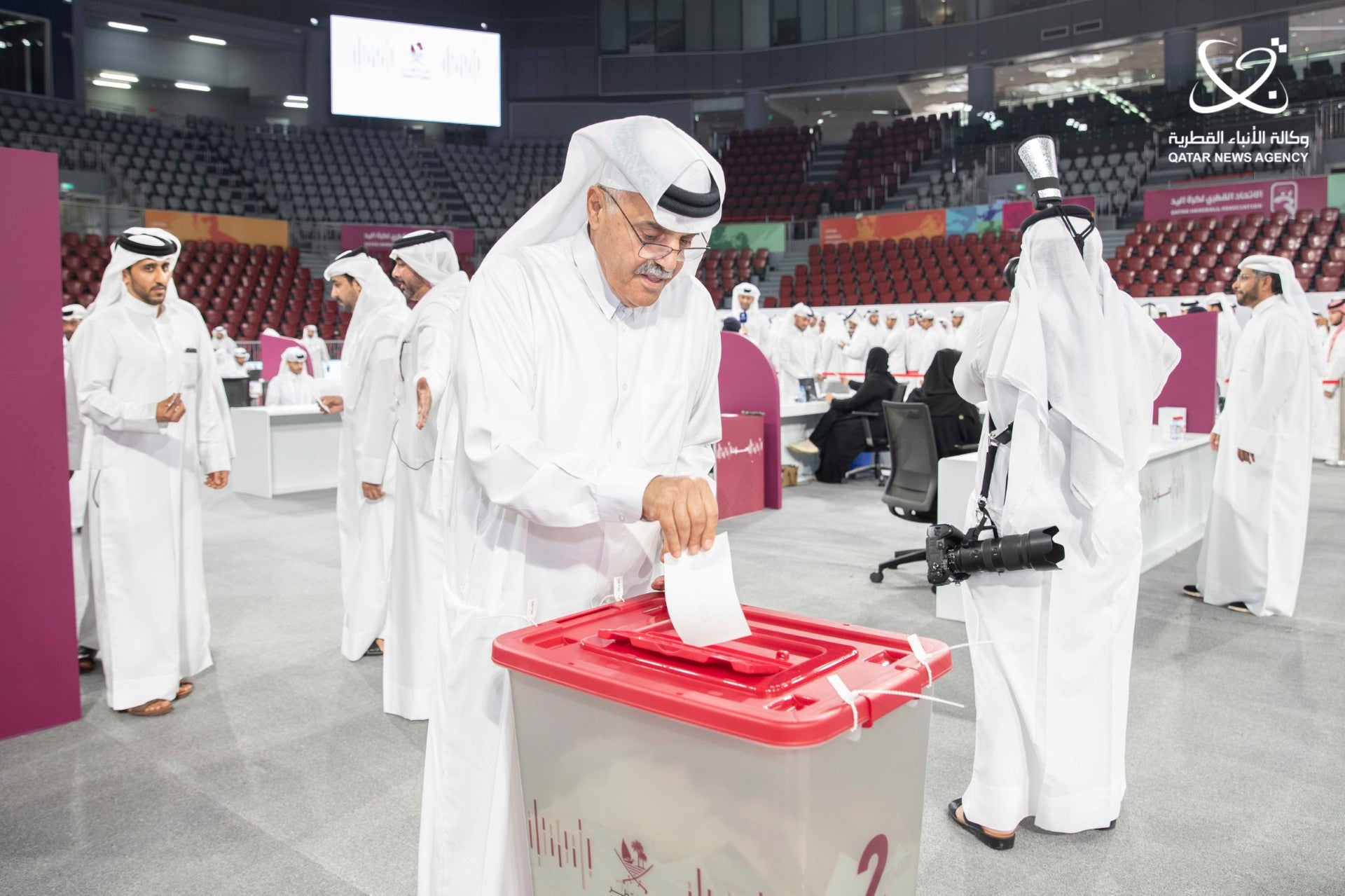Qataris decide whether to end limited voting for legislative seats in shadow of US election
Qatar has opened a snap poll to decide whether to end its limited voting for legislative seats

Your support helps us to tell the story
From reproductive rights to climate change to Big Tech, The Independent is on the ground when the story is developing. Whether it's investigating the financials of Elon Musk's pro-Trump PAC or producing our latest documentary, 'The A Word', which shines a light on the American women fighting for reproductive rights, we know how important it is to parse out the facts from the messaging.
At such a critical moment in US history, we need reporters on the ground. Your donation allows us to keep sending journalists to speak to both sides of the story.
The Independent is trusted by Americans across the entire political spectrum. And unlike many other quality news outlets, we choose not to lock Americans out of our reporting and analysis with paywalls. We believe quality journalism should be available to everyone, paid for by those who can afford it.
Your support makes all the difference.Qatar opened a snap poll Tuesday to decide whether to end its limited voting for legislative seats, a measure likely to pass and end its short-lived experiment in electing members of the country’s advisory Shura Council.
Voting began as the world's attention focused on the U.S. presidential election, with even Qatar’s state-funded satellite news network Al Jazeera offering brief acknowledgments of the vote wedged between coverage of the U.S. and the Mideast wars. Though Qatar's ruling emir, Sheikh Tamim bin Hamad Al Thani, announced last month a vote would take place, it was only Sunday that authorities announced the date of the poll.
Voting will run until 7 p.m. (1600 GMT) and results are expected on Wednesday. All Qatari employees in the country also were granted permission to leave work beginning from 11 a.m. to vote.
Qatar's state news agency described the voting as “an enthusiastic atmosphere and a historic moment, clearly confirming everyone’s keenness to make this national celebration a success.”
The vote will “strengthen the social fabric in the most beautiful image and form, which honestly represents an important stage in the country’s victorious march and its national unity,” the news agency added.
Qatar first introduced plans for legislative elections in its 2003 constitution, but authorities repeatedly postponed implementing the vote. The country finally held elections for two-thirds of the Shura Council, which drafts laws, approves state budgets and advises the ruler, in October 2021.
The elections came after the end of a boycott of Qatar by Bahrain, Egypt, Saudi Arabia and the United Arab Emirates that tore the Gulf Arab states apart. It also came about a year ahead of Qatar hosting the 2022 FIFA World Cup, an event that drew intense scrutiny from the West of the country's treatment of foreign laborers and its system of governance.
Qatar remains an important nation to the West as it hosted the Taliban and assisted in the chaotic 2021 NATO withdrawal from Afghanistan and as a mediator as the Israel-Hamas war rages in the Gaza Strip and has expanded to Lebanon.
But the election created problems in the energy-rich nation. Electoral law distinguishes between born and naturalized Qatari citizens and bars the latter from electoral participation. Human Rights Watch described the system as “discriminatory,” excluding thousands of Qataris from running or voting. The disqualifications sparked minor protests that led to several arrests.
In announcing the vote on changing the constitution, Sheikh Tamim said: “The contest between candidates for membership in the Shura Council took place within families and tribes, and there are different views regarding the repercussions of such competition on our norms, traditions, as well as the conventional social institutions and their cohesion.”
“The contest assumes an identity-based character that we are not equipped to handle, with potential complications over time that we would rather avoid," he added.
The vote marks yet another rollback in the hereditarily ruled Gulf Arab states of halting steps to embrace representational rule following efforts by the United States to push harder for democratic reforms in the Middle East after the Sept. 11, 2001, attacks. Hopes for democracy in the region also rose in the wake of the 2011 Arab Spring.
In May, the ruler of oil-rich Kuwait dissolved his country’s parliament for as much as four years. While the Kuwaiti parliament had struggled, it represented the Gulf Arab state’s most free-wheeling legislative body and could challenge the country’s rulers.